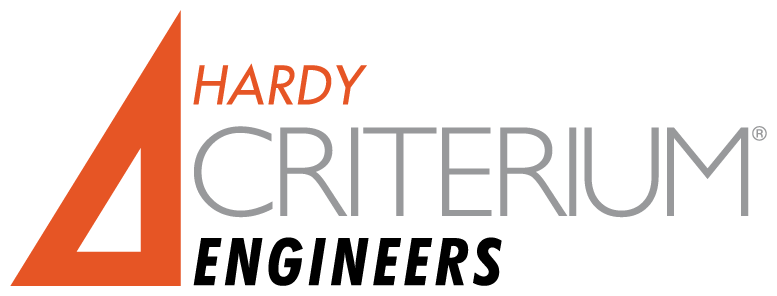How to Sell the Results of a Reserve Study Without a Revolt
 FIDUCIARY DUTY
FIDUCIARY DUTY
One of the primary business duties of community associations is maintaining and preserving property values of the associations’ common property. To do this properly, associations must develop funding plans for future repair or replacement of major common-area components.
A reserve study is a budget-planning tool that identifies the current status of the reserve fund and establishes a stable and equitable funding plan to offset the anticipated future major common-area expenditures. Being prepared for non-annual expenses allows your association to change the unexpected to the expected. Reserve studies are one of the best strategies for financial and physical health at the association’s disposal. In order to keep the replacement costs current, the reserve study should be updated (with a site visit) every three to four years.
COMMUNICATION AND RELATIONSHIPS
It is our belief that fundamental to the accomplishment of any of these objectives is two basic premises: communication and relationships. Communication is multi-faceted – between the board and the owners, between the board (and/or subcommittee) and the consultant, and between the consultant and the owners. To ignore these opportunities for effective communication will result in diluting the effectiveness and ultimate success of the implementation of any reserve study on the books for your association.
Relationship nurtures trust and confidence. Through effective communication, greater trust and confidence can be developed between the various parties involved. As a result, it is more likely (although certainly not guaranteed) that the recommendations of a reserve fund study can be effectively implemented.
AN OUTLINE FOR SUCCESS
It is imperative that the scope of a reserve study be clearly defined before even seeking proposals from consultants. The following are a variety of options to be included in the scope of any Request for Proposals:
- Define the project – From the table above, define exactly what is expected of the consultant. This should be as a result of discussion by the board and/or building subcommittee to determine what is needed. It is particularly important to decide whether the reserve study is to be based on simply replacing existing components or if upgrades and improvements should be considered.
- Interview the consultant – The RFP should include a paragraph such as follows below. Getting to know the consultant, the people involved on your project and their approach to the project is imperative to a successful relationship.
The board will select two to three consultants it believes to be qualified for the work and then conduct interviews. The objective of the interview is to meet the people who will be specifically working on our project, discuss a variety of questions, and generally understand the procedures the consultant intends to use for the project. A final choice will be made within one week following the interviews.
A reserve provider’s objectives are threefold: to provide a broader perspective on reserve studies; to assist property managers with a successful presentation of reserve fund studies; and to create opportunities for more meaningful reserve studies and effective implementation of recommendations. - Pre-project meeting – The board (or building subcommittee) should meet with the consultant before actual work starts. The objective is to refine and finalize the scope of the project. This is also an opportunity to determine what will be expected of the association (or management company) and what will be expected of the consultant throughout the project. Suggested language for the RFP is as follows:
The first step after selection is a meeting with the board (building subcommittee) to review, refine, and finalize the scope of this project. At that time, the items to be covered, the procedures involved, the on-site protocol to be used by the consultant, and any special concerns of the board (building subcommittee) will be discussed. - Conduct an owner survey – The intent is to give all of the owners the opportunity to express any particular concerns they might have about the project. While this may seem risky, it has been our experience that it is actually quite effective. Such a survey would be accompanied by a letter from the association providing all of the owners with the scope and limitations of the reserve study to be conducted and encouraging them to respond to the survey. It has been our experience that there is a very high percentage of response. Often the response to these surveys will reveal patterns that relate to association responsibilities as well as giving owners the opportunity to note areas of concern. The following is text for the RFP relative to this point:
The consultant is expected to participate in at least one meeting with the board (building subcommittee) prior to commencement of the project.
The consultant is expected to distribute a survey for use by all unit owners and compile the results of that survey as a part of the reserve fund study.
The content of the survey should be reviewed and modified for each specific project. Also, a letter should be distributed to the unit owners, along with the survey, explaining the purpose and logistics of the reserve study and the survey. That letter should be on the association stationery. The survey would be on the consultant’s stationery.
The final report would include a summary of the survey findings as well as any specific recommendations or observations related to the survey. - Follow-up meetings – It is important that the consultant be willing to discuss the findings of the study with the directors, building subcommittee, and unit owners. This is especially important if the study includes an evaluation of upgrades and improvements. Ideally, there will have been ongoing communication with the directors (building subcommittee) throughout the study process. A meeting with the unit owners will be a logical extension of that process. The following is language to be used in an RFP for that purpose:
The consultant is expected to attend at least one meeting to which all of the unit owners are invited. This will occur after submittal and acceptance of the final report. The consultant will be expected to provide an overview of their findings and to respond to questions from the unit owners. - Report format – Effective communication means effective distribution of information. In larger associations (more than thirty to fifty unit owners), distributing the complete report is impractical, cumbersome, and usually unnecessary. However, a condensed “owners’ report” is a valuable tool to distribute information. Typically, the owners’ report would include an executive summary and the financial projections that are part of the master report. To achieve this purpose, the following language is suggested for the RFP:
The consultant will provide (enough for the board or building subcommittee) copies of the complete final report. This will include photographs highlighting areas of concern and/or special interest. In addition, the consultant will provide a single reproducible copy of an owners’ report which will include a brief (two to three pages) overview of the findings of the study and the reserve fund projections. - Review draft report – For the association, directors, and building subcommittee to be comfortable with the work of the consultant, it is important that there be interaction throughout the process. Generally, we recommend that the consultants meet with the directors/building subcommittee regularly throughout the process of developing the study and submit a draft report for review and comment by the directors/building subcommittee. Recommended RFP language is as follows:
The consultant will provide a draft report for review by the board (building subcommittee). The board (building subcommittee) will provide comments within two weeks of receipt of the draft report. Following that, the consultant will provide its final report.
Now That You Have the Results, Where Do You Go From Here?
In the first half of this article, we discussed reserve studies and selling the results of the report to your association (without a revolt!). Now that you have the association on board with the report, how do you go about implementing the actual findings?
Click here to download the full article and a complete look at next steps…
Note: these resources are provided for consumer guidance only. To have a licensed, Professional Engineer inspect your deck, contact Criterium-Hardy Engineers.
